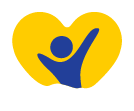Occupational Therapy
What is Occupational Therapy (OT)?
Occupational Therapy is the assessment and treatment of physical, mental and/or social conditions using specific, purposeful activity to prevent disability and promote independent function in all aspects of daily life (British Association of Occupational Therapy, 2006)
The role of the Occupational Therapy service is:
- To help people live in their homes safely and efficiently
- To help people learn or re-learn the skills they require for daily living
- To look at ways of adapting the home environment to make everyday activities easier
- To support people in decisions they make about managing their long term condition
If you are interested in learning more about OT, or in training as an Occupational Therapist the Royal College of Occupational Therapists (RCOT) has a wealth of information available at www.rcot.co.uk
The GHA has Occupational Therapists who work with:
- inpatients at St. Bernard’ s
- people in their own homes (Community);
- children (Paediatrics);
- people with mental health issues (ARC & Ocean Views);
- wheelchair users;
- people who have lost function in one or both hands (Hand Therapy)
GHA OCCUPATIONAL THERAPY SERVICES
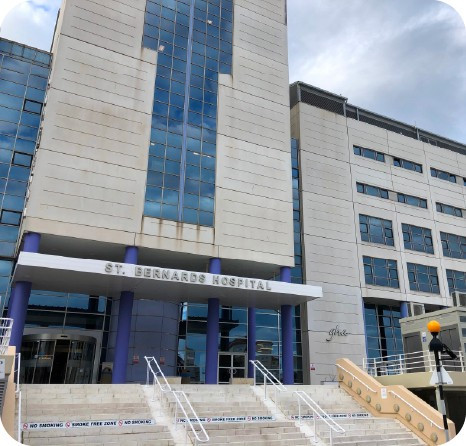
St Bernard’ s Hospital – Inpatients
The inpatients OT team works with patients of all ages whilst they are on the wards in St. Bernard’ s Hospital and the work includes orthopaedics, surgical, acute medical, neurological, stroke rehabilitation, elderly rehabilitation and palliative care. Referrals are made by the doctors when they feel OT input will be required in order to facilitate a safe discharge home or for rehabilitation. The OTs willnormally meet with the patient within 48 hours of receiving the referral.
The aim of intervention is to enhance independence in functional activities of daily living to an optimal level following the illness or injury. The OT will sometimes arrange to visit the patient’ s home to assess whether equipment or adaptations may make everyday life easier, aiming for the home environment to be as safe as possible and for the person to be as independent as possible for when they return home. They may also follow the patient up at home for a short while post-discharge as required. The OT’ s work closely with the hospital Multi-Disciplinary Team and the Care Agency as well as other agencies, for example, Red Cross, Housing and Housing Works Agency.
Community
The Community Occupational Therapy (COT) Adult Team aims to promote, maintain or restore an individual’ s potential to achieve independence in activities of daily living to enable them to remain in their own home. The aim of intervention is to restore independence in functional activities of daily living, to an optimal level following illness or injury. The COT Team provide a wide range of community services including domiciliary OT, equipment provision, home adaptation or alteration assessment, falls prevention advice / intervention, palliative care and seating assessments.
The Community OT service is available to those who are 18 years and older who are residents or working in Gibraltar. Referrals are accepted for those adults who present with, primarily, a physical health problem, usually following illness or injury or have a physical or medical condition which is affecting their ability to engage in their everyday activities. The COT Team work closely with the Community Multi-Disciplinary Team and the Care Agency as well as other agencies, for example, Red Cross, Housing and the Housing Works Agency.
Referrals will be accepted from health or social care professionals from within the GHA or from the wider Multi-Disciplinary Community Adult Team (General Practitioners, Social Workers, District Nurses, Community Physiotherapists, Speech and Language Therapists, Dieticians, Specialist Nurses, Housing or the Care Agency day/respite facilities such as St. Bernadette’ s and Dr Giraldi).
As there is a high demand for Community Occupational Therapy services, the team cannot respond to all referrals immediately and a waiting list is in operation. Referrals are prioritised upon receipt but there may be a significant wait for assessment.

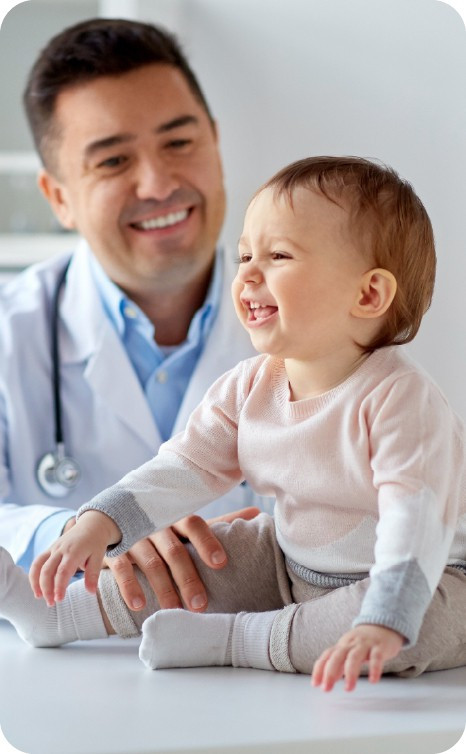
Paediatrics
The Paediatrics team’ s primary goal is to enable children to participate as fully as is possible in the activities of everyday life. Paediatric OTs analyse why a child may be struggling to carry out specific tasks and apply specialist approaches and techniques to maximise a child’ s engagement, achievement and independence in areas of self-care, school and play.
Aspart of a multidisciplinary team, they provide therapy to children 0-18 years of age with a wide range of challenges from complex physical needs and learning difficulties to others with handwriting or sensory needs. They are involved in the assessment, rescription and/or recommendations for environmental adaptations and/or specialist equipment such as specialist seating or aids for daily living.
Paediatric OTs work closely with children and their families in their homes, school and other environments. Helping a child to overcome challenges needs to be a 24 hour approach and not solely focused on the OT contact times. Their collaborative approach aims to “up skill” the people that surround and support a child in their daily life to ensure that they have the knowledge and skills to maximise a child’ s independence.
Referrals can be made through the GP, school or other members of the multidisciplinary paediatric team such as Consultant Paediatrician, Physiotherapist, Speech and Language Therapists, Educational Psychologists, Dieticians or Clinical Psychologist. As there is a high demand for this service, the team cannot respond to all referrals immediately and a waiting list is in operation. Referrals are prioritised upon receipt but there may be a significant wait for assessment.
Mental Health
The Activity and Rehabilitation Centre (ARC) at Ocean Views provides a wide range of treatment, activities and support to facilitate functioning and recovery to clients within the mental health service.
The ARC encourages the clients’ independence in all activities, from making themselves a cup of tea, to supporting time spent at home and paying bills/
rent and looking after their own home. The ARC provides a wide range of groups and activities, and also offers individual sessions, for example, cooking lunch, preparing for discharge, or supporting the client to maintain their functioning and recovery.
The ARC team consists of three Occupational Therapy staff and three Nursing staff, who work collaboratively to provide a service to the clients. Referrals are accepted from all three wards (of Ocean Views Mental Health Facility) and some sessions are specifically for certain wards. Tuesday and Thursday afternoons are specifically for the needs of Horizon ward to provide a quieter environment. Sunshine ward have a session on Friday afternoons (usually for the elderly bus ride) and a ‘pamper group’ is held weekly on Tuesday afternoons on the ward. The ARC provides groups and activities to meet the needs of the clients. What might seem a simple ‘outing’ actually incorporates a lot more with regards to the aims and needs of the client. The Community skills groups provide structure and routine, a chance to socialise with others from within and outside of the hospital, and to gain confidence in using public transport. It encourages motivation and confidence in an everyday activity of
going out for a coffee, and may include, for example, paying bills, collecting
benefits, attending hairdresser/dental appointments, or buying toiletries/clothes.
The ARC also provides relaxation sessions for the clients on the wards, the Drug and Alcohol Service (Bruce’ s Farm) and the Cardiac Rehabilitation Service at St Bernard’ s Hospital. Community clients are seen either in groups or individually to encourage independence and community living skills.

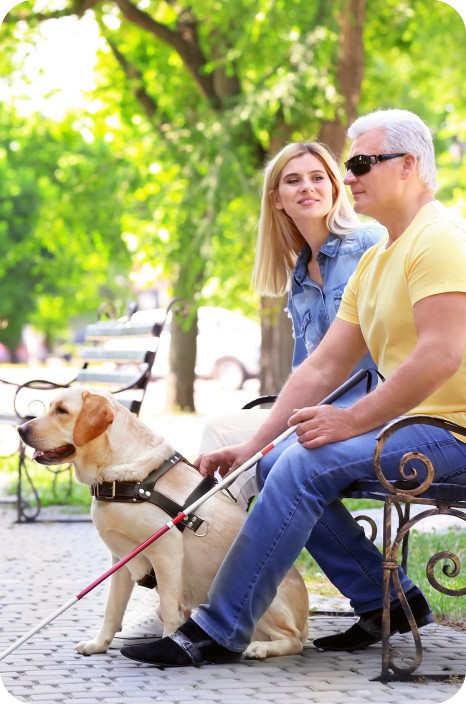
Rehabilitation Officer for the Visual Impaired
The Visual Impairment service is based within the Occupational Therapy department and comprises a part-time Rehabilitation Officer for People with a Visual Impairment (ROVI) who can provide assessment, advice, and emotional support, as well as training in mobility, communication, and daily living. The ROVI can provide equipment, advice on adaptations to the environment both indoors and outdoors, support family and carers with understanding the patient’ s condition and techniques to assist people with a visual impairment. In addition to this the ROVI can provide Visual Impairment awareness sessions to organisations, and environmental audits.
The patient being referred would have a visual impairment which as a result of they are having difficulty with one or more of the following:
- Orientation, Mobility
- Cooking or other Daily living tasks
- Communication-difficulty reading writing, listening
- Employment issues
- Housing and access issues
- Educational issues
- Psychiatric/psychological
- Social
All referrals must be from a health/social care professional, optician or organisation involved with the patient.
Wheelchair Assessment and Provision
The OT department at St. Bernard’ s provides specialist seating assessments, for those who meet the criteria, in view of providing wheelchairs for both inpatients and outpatients, who are or become wheelchair dependent. Referrals for wheelchair assessment by the Occupational Therapist can be made by Health and Social Care Professionals.
If you require a wheelchair for occasional outdoor or social use you can contact the Gibraltar Red Cross on 200 74452.
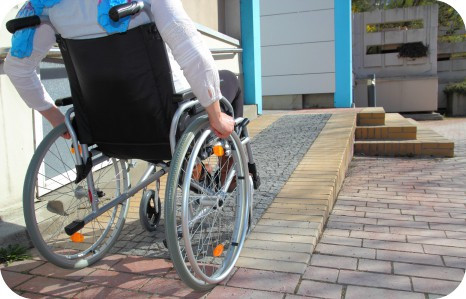
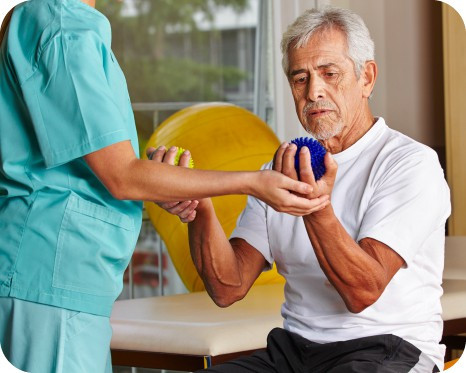
Hand Therapy
The OT Department at St. Bernard’ s Hospital offers a part-time Hand Therapy Service for adults and children who have been affected by trauma, disease, repetitive motion disorders and progressive conditions affecting the joints or tendons and nerves of the hand and forearm. The goal of therapy is to prevent deterioration and restore maximum function to the hand so the therapist works closely with plastic, orthopaedic and rheumatology consultants, and has a sound understanding of any surgical or medical procedures performed and the plan for your recovery. The hand therapy service includes hand and upper limb assessments and treatments including splinting to support your return to activities of daily living as well as to work and leisure activities.

